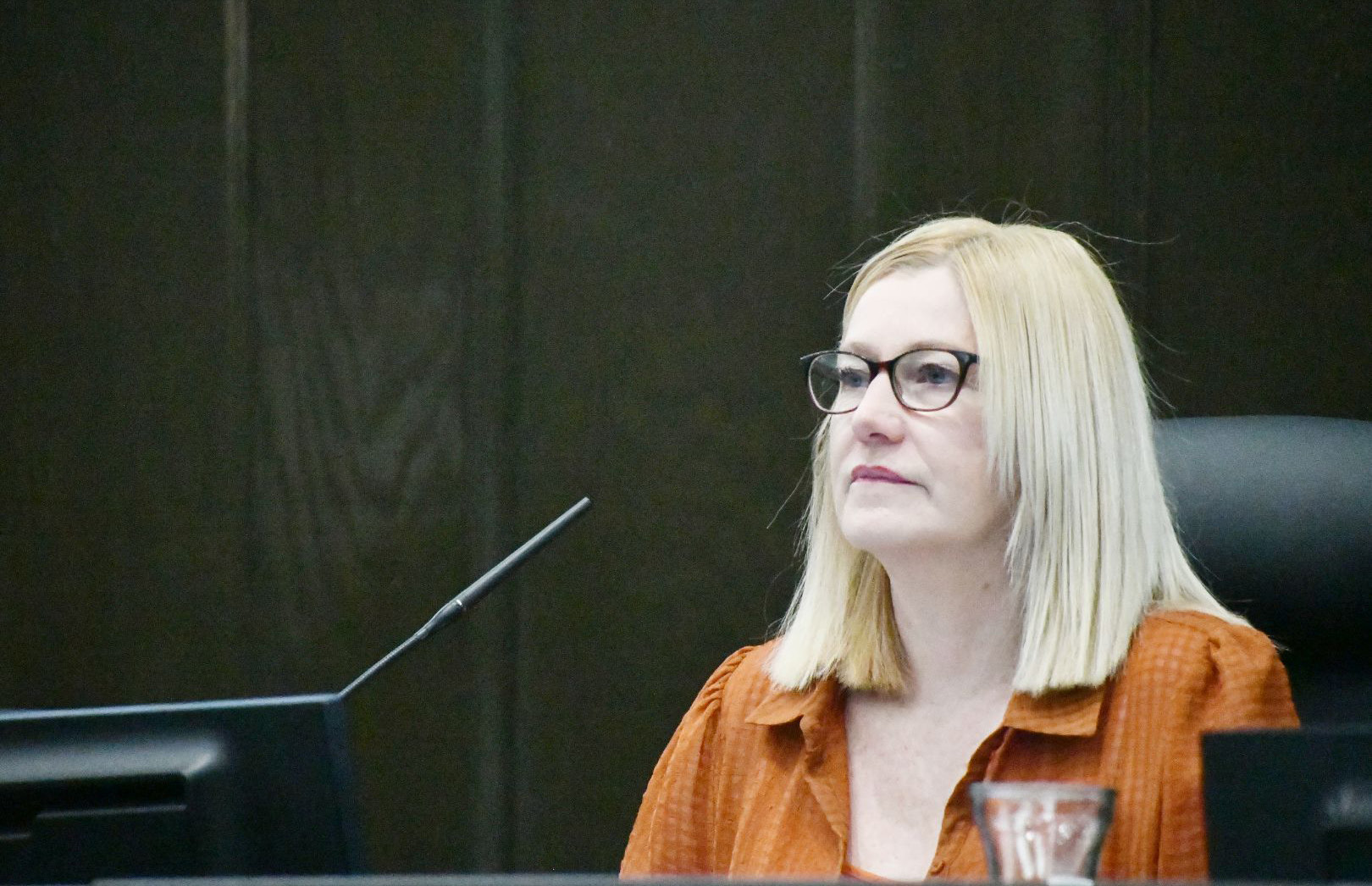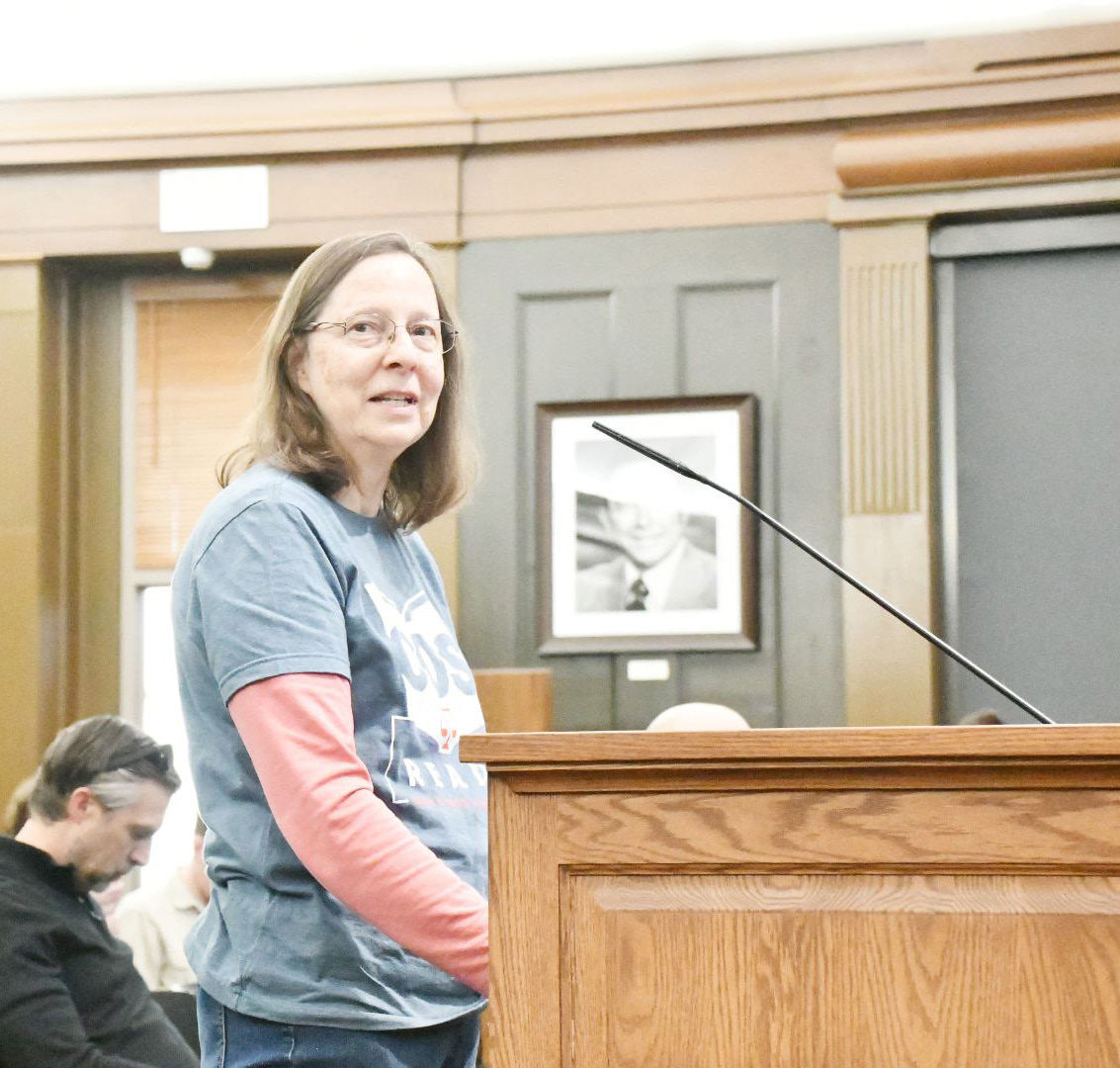The new leadership of Colorado Springs’ City Council saw pushback from members of the public after it decided to hear citizens’ comments at the end of meetings instead of the beginning and limit the allotted time and methods of communication.
The change came from newly elected Council President Lynette Crow-Iverson and her deputy Brian Risley in an email sent last week to people who regularly comment at City Council sessions.
Among those opposed to the changes to citizens’ comments were residents of northwest Colorado Springs, who have been coming to City Council meetings for months, as they fight to have their local library re-opened.
“These changes don’t just affect how we speak; they send a message about whether you truly want to hear from us at all,” library supporter Veronica Baker said during Tuesday’s citizens’ comments.

In addition to pushing citizens’ comments to the end of Council meetings, the changes limit the public comment period to one hour, do away with remote comments, and bar speakers from ceding their three minutes to another speaker.
The rule change that barred remote comments obliged Karla Powers, who spearheaded the grassroots Save Rockrimmon Library movement, to bring one of her grandchildren to the Council meeting.
“Because the library is so important to me and other people … I cannot not talk,” Powers said. “So unless I can join remotely, I’ll have to bring [my granddaughter] with me every time.”
Another library supporter, Joe Pelka, addressed his comments to the four new council members.
“The last thing you probably want to do is start out your term by restricting public comment from the very people you said you want to represent,” he said.
The email, sent by City Council’s Constituent and Outreach Program Coordinator Sam Friedman to “members of the public who appear frequently before the City Council,” said that Crow-Iverson and Risley “as part of their powers as President and leadership … are making some changes to the City Council Agenda and the Public Comment Process …”
Crow-Iverson told the Pikes Peak Bulletin that the changes had been made to “ensure more efficient, focused Council meetings,” respect the time and resources of City staff, and to prioritize “city business and agenda-specific feedback, while still preserving access for broader public comment, albeit in a different part of the meeting.”
These changes don’t just affect how we speak; they send a message about whether you truly want to hear from us at all. – Veronica Baker
“We absolutely continue to value citizen input, especially on items that Council is actively deliberating, and we are committed to maintaining that dialogue,” she said.
A clause in City Council’s rules and procedures says the Council “may allow members of the public to address the City Council electronically and/or telephonically.”

The rules limit each person’s comments to three minutes and the total time for citizens’ comments to one hour but give the president the option to modify both time limits.
The rules do not state if the one-hour time limit includes questions asked by council members or when during a Council meeting the public comment period should be held.
Last fall, the public comment period was moved to the beginning of Council meetings after several speakers said they couldn’t take an entire day off work to wait for citizens’ comments to roll around.
Moving citizens’ comments to the end of the meeting sent a message that “it’s OK if someone has to miss work, arrange costly childcare, or give up half their wages to participate in democracy,” Baker said.
Councilor Dave Donelson said he hoped Crow-Iverson and Risley would reconsider the changes to citizens’ comments.
“It’s really serious that a mother or grandmother is not allowed to call in and is unable to participate … unless she brings her kids with her,” said Donelson, who was recently re-elected to represent District 1 for four more years.
“Maybe we will reconsider,” he said. “I hope we will.”

